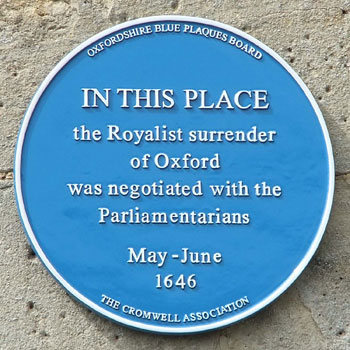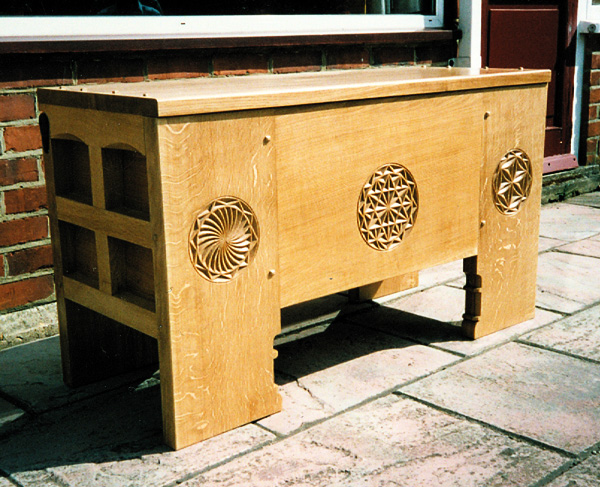The History Society met on 13th November to hear a talk given by Stephen Barker.
In August 1642, initial attempts by the Royalists under Sir John Byron – who only managed to stay in Oxford for 8 days, until religious difficulties in the town forced him out – and then the Parliamentarians, again for only a few days; attempted to take Oxford for their sides. King Charles 1 arrived in October 1642 and made Christchurch College his HQ and Oxford his Royal Court.
Oxford was seen as a strategic centre with the Cherwell & Isis providing both good defence and good communication/supply links, the roads were good for the period and although the Walls were in a state of disrepair, Oxford was large enough and rich enough to accommodate the Royal Court.
Oxford, however, had internal conflicts between Town & Gown. The University was essentially Royalist and students of New College had already formed an armed militia to thwart the Parliamentarians in 1642, while the Town was essentially Puritan/Calvinist – and resented the Catholic Popish insurgency, burned Popish books/art and held anti-Catholic meetings nightly in Carfax. Charles was already a great benefactor to the University (see Canterbury Quad) and favoured the University by excluding them from paying taxes and at the same time Charles and Archbishop Laud were introducing Catholic religion into the dominant Calvinist society. Conflict between Charles and the town Council was evident throughout his stay in Oxford including demands for militia to be raised for his Armies and demands for the local populace to work without pay – and with their own shovels – on the Defensive Walls.
The talk continued with details of the Great Fire in Oxford in 1644, the Roundhead Sieges of 1644 and 1645, together with stories from witnesses of the life in Oxford during that time – with its overcrowding, disease, military rule and the harsh prison regime.
The area between Abingdon (Parliamentarian) and Wallingford & Farringdon (both Royalist) was ‘frontier country’ with skirmishes taking place frequently between the warring sides. Who knows ? Wootton & Dry Sandford may well have featured in these, although no major battles took place here.
The Civil War ended with Charles, unable to resist the Roundhead siege any longer, fleeing across Magdalen Bridge disguised as a servant with ‘Goodbye Harry’ ringing in his ears as he left Oxford to reinforce the disguise.
Adrian Cantwell
Next talk: “The Coming of the Railway to Oxford” – 8th January 2015 by Liz Woolley.


